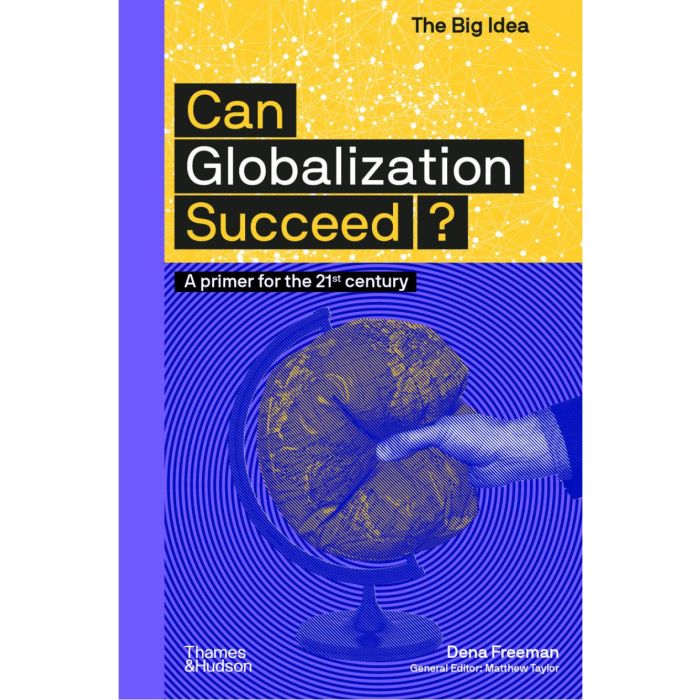My Cart
Your cart is empty
Looks like you haven't made your choice yet.
- Subtotal
Big Idea - Can Globalization Succeed?

A Primer for the 21st Century
- Thames & Hudson +
- by Dena Freeman
More Information
| Publisher | Thames & Hudson + |
|---|---|
| ISBN | 9780500295670 |
| Author(s) | Dena Freeman |
| Publication date | August 2020 |
| Edition | Paperback |
| Dimensions | 229 x 152 mm |
| Illustrations | 150 col. & bw ill. |
| Pages | 144 |
| Language(s) | Eng. ed. |
Description
Why do so many people feel that rather than being ‘citizens of the world’ they are ‘citizens of nowhere’, disparaged by ‘metropolitan elites’? The expansion of capitalism and neoliberal ideologies have created international standardization, deregulated free markets and increased economic integration between countries, making the production of goods increasingly global and bringing global interconnectedness to individuals. However, many people argue that the success of globalization has led to a huge rise in social and economic inequality, environmental damage, erosion of democracy and decreasing variance of cultural expression. Can it prevail over the current widespread backlash?
This book traces the development of economic globalization since the first wave of colonization in the 16th century through the role of corporations in the 19th century to 20th-century frameworks for international monetary policy. It assesses the impact of non-governmental organizations and large trading blocks such as the EU on the power of the nation state and evaluates the effects of cultural globalization on different populations. It then reviews the anti-globalization movement of the 1990s and 2000s and the more recent nationalist backlash led by President Trump, and embodied in the 2016 Brexit vote and the gilets jaunes. Finally, it explores whether globalization can be saved from its critics in a world in which global governance is crucial to solving global warming and upholding human rights. Is globalization dead or can it be adapted to be more just and more democratic?
Dena Freeman is senior visiting fellow at the Department of Anthropology, LSE. Most recently, she explored the de-democratization of economic policy in contemporary neoliberal globalization in association with LSE’s international inequalities institute.
